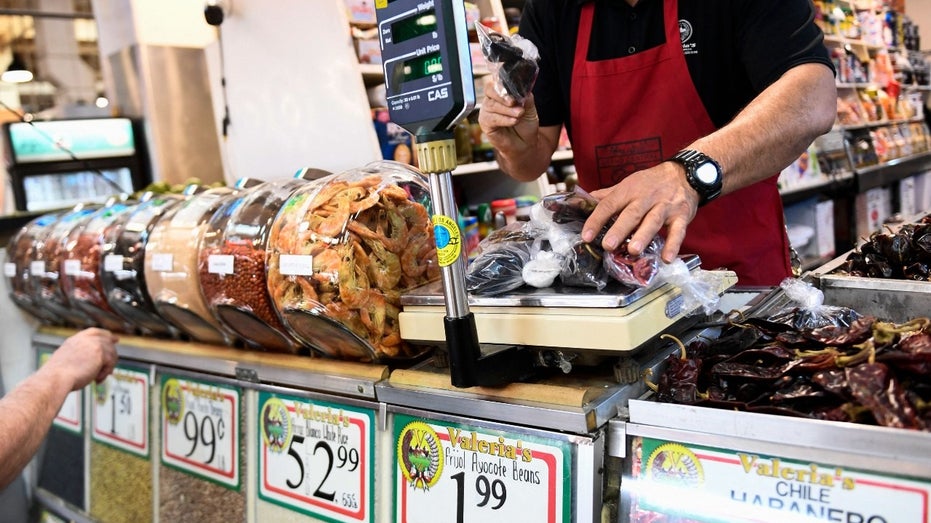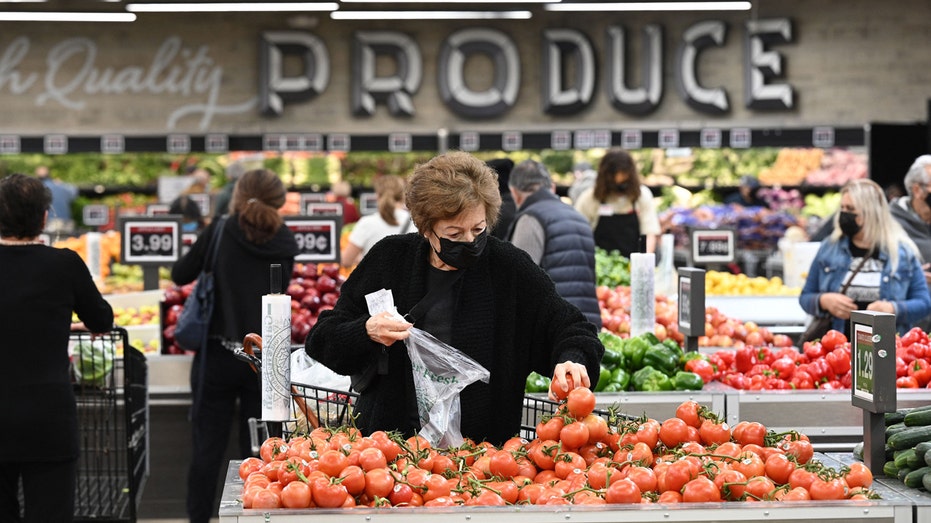Small businesses feel sting of inflation as prices soar, survey shows
Eighty-five percent of small business owners are worried about surging inflation
Inflation 'out of control' at a time when the economy 'is headed towards a recession': Kevin Hassett
Former Chairman of the Council of Economic Advisers Kevin Hassett weighs in on the Labor Department's inflation report for February, noting that 'wages aren't keeping up with prices,' which means 'real incomes are going down.'
Small businesses are increasingly worried about the impact of red-hot inflation, with a majority of owners raising prices on consumers to offset the financial pain.
That's according to a new survey from the Chamber of Commerce and MetLife published on Tuesday, which found that 85% of small business owners are concerned about the ramifications from the highest inflation in four decades. Close to half – 44% – of respondents said they were very concerned, an increase of 14 percentage points from the end of 2021.
WHERE ARE SURGING CONSUMER PRICES HITTING AMERICANS THE HARDEST?
"Inflation is top-of-mind for small businesses as it continues to limit their purchasing power, forcing small businesses to raise their prices and absorb higher costs within already thin margins," Tom Sullivan, Chamber vice president of small business policy, said in a statement.

A clerk weighs dried peppers for a customer inside Grand Central Market on March 11, 2022, in downtown Los Angeles, California. (Patrick T. Fallon/AFP via Getty Images / Getty Images)
To cope with higher prices, about two-thirds of respondents said they were raising costs for consumers. Small retailers were more likely to report raising the prices of their goods and services (80%) than those in professional services (68%), manufacturing (65%) and services (56%).
One in three small business owners (33%) now rank inflation as the biggest financial challenge, an increase from 23% in the previous quarter. Other concerns include supply chain disruptions, COVID-19 safety protocols and compliance, revenue and employee well-being and morale.
A persistent labor shortage has also weighed on small businesses as owners are forced to hike wages in an increasingly competitive market to hire new workers. Some economists have warned that rising wages could fuel even higher inflation – a jarring possibility, given that consumer prices already surged 7.5% in January, the fastest pace since February 1982.

People shop for groceries at a supermarket in Glendale, California January 12, 2022. ((Photo by ROBYN BECK/AFP via Getty Images) / AP Newsroom)
The combination of high inflation and rising wages has fueled concern about the possibility of a wage-price spiral, a 1970s-style phenomenon where high inflation leads to pay hikes, which in turn lead to more spending and more expensive prices.
"The administration and Congress need to focus on easing the burden on small businesses by reducing inflationary pressures and addressing the worker shortage crisis to ensure continued recovery on Main Street," Sullivan said.
GET FOX BUSINESS ON THE GO BY CLICKING HERE
The inflation spike has been bad news for President Biden, who has seen his approval rating plunge as consumer prices rose. The White House has blamed the price spike on supply chain bottlenecks and other pandemic-induced disruptions in the economy, while Republicans have pinned it on the president's massive spending agenda.
Still, despite the headwinds, small businesses said they remain relatively optimistic about their operations and expectations for the future. About three in five owners, or 61%, said their business is in good health.





















